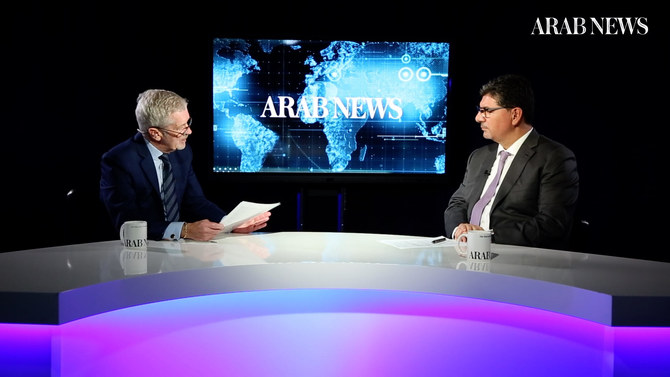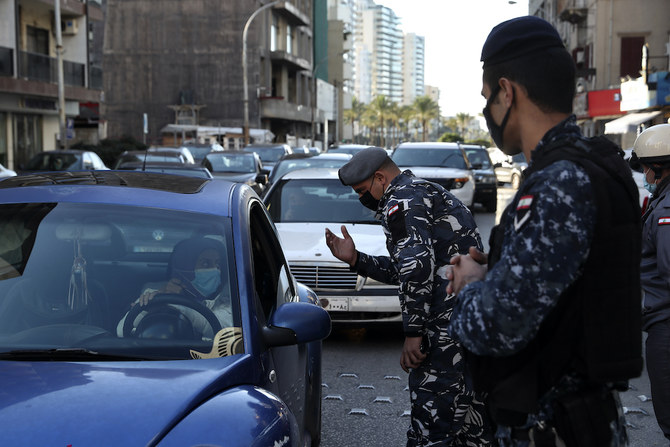
by albawaba.com & arabnews.com -- On Saturday, MP Anwar Al-Khalil said that Aoun’s media office’s statement on Friday “undermines the Lebanese people’s minds and destroys the hope of forming an important government. It is also a digression from obstinacy and stubbornness.” Friday’s statement said Aoun was a “partner in choosing ministers and distributing ministerial portfolios.” Al-Khalil reminded Aoun that “the constitution named you as president, a symbol of national unity and a protector of the constitution.” “Your advisers are making you one team. Enough bickering! Support the whole country and save it from collapse,” Al-Khalil said.
Aoun defended himself and the head of the Free Patriotic Movement (FPM), MP Gebran Bassil, against the accusation of obstructing the formation of a government, which raised tension between him and Prime Minister-designate, Saad Hariri. MP Hadi Abu Al-Hassan said: “Hariri is faced with a crippling process in order to force him to resign.” He added that the president and the FPM “do not want the return of Hariri as prime minister without Bassil in the government.” He criticized Aoun, saying: “The covenant is unconscious. It lives somewhere else, as attested to by all, and through his practices, he wants to monopolize everything.” “The problem in the country is the non-presence of a conscious central authority that is aware of what is happening. It is absent and today, we are reaping what was sown,” he said.

By FRANK KANE -- arabnews.com -- DUBAI: Bahaa Hariri, the eldest son of slain Lebanese statesman Rafik Hariri, is calling for a broad alliance — a “supermajority” — to coalesce around a plan to agree on the way forward for Lebanon as it faces multiple crises. Such an alliance is needed to implement the unfinished business of the Taif Agreement, the peace deal brokered by Saudi Arabia 30 years ago, Bahaa said as he gave a candid assessment of Lebanon’s situation on Frankly Speaking, the televised interview in which senior Middle East policymakers are questioned on their views about the most important issues of the day. “We have to make sure that across the sectarian divide, the forces of moderation go hand in hand to put (together) a complete comprehensive plan — whether it’s an economic plan, a COVID-19 plan, a constitutional plan, a judiciary plan, or a security plan,” he said, noting that Lebanese was “at the precipice.”
Bahaa, a billionaire Lebanese businessman, added: “We seek the full support of Saudi Arabia to make sure of the full implementation of the Taif Accord. It is key for us that Saudi Arabia helps us out and supports us in this. That's the key.” The Taif Agreement, signed in 1989 under Saudi auspices at the end of the bitter civil war, had never been fully implemented, Bahaa said, but remained as a blueprint for achieving progress in the country. “If we are going to come to the Arab world and the international community, they’ll tell us you have an accord, but three-quarters of it hasn’t been executed,” he said. “If we want a new accord, it may take us another 10 years and maybe half a million dead.” Referring to the Taif Agreement, Bahaa said: “We need to make sure that this accord is executed to the letter: The separation of religion from the executive and the legislative branches; the establishment of a senate that protects minorities; the establishment of an independent judiciary; and an electoral law that meets the aspirations of all Lebanese. And that we have a new election.”

By Washington University School of Medicine -- One of the most vexing aspects of the COVID-19 pandemic is doctors' inability to predict which newly hospitalized patients will go on to develop severe disease, including complications that require the insertion of a breathing tube, kidney dialysis or other intensive care. Knowledge of a patient's age and underlying medical conditions can help predict such outcomes, but there are still surprises when younger, seemingly healthier patients suffer severe complications that can lead to death. Now, scientists at Washington University School of Medicine in St. Louis have shown that a relatively simple and rapid blood test can predict -- within a day of a hospital admission -- which patients with COVID-19 are at highest risk of severe complications or death. The study, published Jan. 14 in JCI Insight, involved nearly 100 patients newly admitted to the hospital with COVID-19. The blood test measures levels of mitochondrial DNA, a unique type of DNA molecule that normally resides inside the energy factories of cells. Mitochondrial DNA spilling out of cells and into the bloodstream is a sign that a particular type of violent cell death is taking place in the body.
"Doctors need better tools to evaluate the status of COVID-19 patients as early as possible because many of the treatments -- such as monoclonal antibodies -- are in short supply, and we know that some patients will get better without intensive treatments," said co-senior author Andrew E. Gelman, PhD, the Jacqueline G. and William E. Maritz Endowed Chair in Immunology and Oncology in the Department of Surgery. "There's so much we still don't understand about this disease," he added. "In particular, we need to understand why some patients, irrespective of their ages or underlying health in some cases, go into this hyperinflammatory death spiral. Our study suggests that tissue damage may be one cause of this spiral, since the mitochondrial DNA that is released is itself an inflammatory molecule."

by AP -- BEIRUT: Authorities in Lebanon on Thursday extended a nationwide lockdown by a week, to Feb. 8, amid a steep rise in coronavirus deaths and infections that has overwhelmed the health care system. Despite increasing the number of hospital beds in the country of nearly 6 million, doctors and nurses have struggled to keep pace with patients flooding their facilities. Intensive care unit bed occupancy has been rising, hitting 91% late Wednesday, according to the World Health Organization. Registered daily infections have hovered around 5,000 since the holiday season, up from nearly 1,000 in November. The overall death toll has surpassed 2,000, with new fatalities numbering between 40 and 60 deaths a day in the past week.
Doctors say with increased testing, the number of confirmed infections has also increased, recording a positivity rate of over 20% for every 100 tests. Nurses and doctors are overwhelmed, and more than 2,300 health care workers have been infected since February. Lebanon has yet to carry out any vaccinations. The government finalized a deal with Pfizer last week for vaccines that will arrive in early February. The World Bank said Thursday it approved $34 million to help pay for vaccines for Lebanon that will inoculate over 2 million people. The steep rise in infections and deaths comes despite the strict lockdown in place since Jan. 14. On Thursday, the government decided to extend that lockdown, which was due to expire Feb. 1, by a week.
Khazen History


Historical Feature:
Churches and Monasteries of the Khazen family

St. Anthony of Padua Church in Ballouneh
Mar Abda Church in Bakaatit Kanaan
Saint Michael Church in Bkaatouta
Saint Therese Church in Qolayaat
Saint Simeon Stylites (مار سمعان العامودي) Church In Ajaltoun
Virgin Mary Church (سيدة المعونات) in Sheilé
Assumption of Mary Church in Ballouneh
1 - The sword of the Maronite Prince
2 - LES KHAZEN CONSULS DE FRANCE
3 - LES MARONITES & LES KHAZEN
4 - LES MAAN & LES KHAZEN
5 - ORIGINE DE LA FAMILLE
Population Movements to Keserwan - The Khazens and The Maans
ما جاء عن الثورة في المقاطعة الكسروانية
ثورة أهالي كسروان على المشايخ الخوازنة وأسبابها
Origins of the "Prince of Maronite" Title
Growing diversity: the Khazin sheiks and the clergy in the first decades of the 18th century
Historical Members:
Barbar Beik El Khazen [English]
Patriach Toubia Kaiss El Khazen(Biography & Life Part1 Part2) (Arabic)
Patriach Youssef Dargham El Khazen (Cont'd)
Cheikh Bishara Jafal El Khazen
Patriarch Youssef Raji El Khazen
The Martyrs Cheikh Philippe & Cheikh Farid El Khazen
Cheikh Nawfal El Khazen (Consul De France)
Cheikh Hossun El Khazen (Consul De France)
Cheikh Abou-Nawfal El Khazen (Consul De France)
Cheikh Francis Abee Nader & his son Yousef
Cheikh Abou-Kanso El Khazen (Consul De France)
Cheikh Abou Nader El Khazen
Cheikh Chafic El Khazen
Cheikh Keserwan El Khazen
Cheikh Serhal El Khazen [English]
Cheikh Rafiq El Khazen [English]
Cheikh Hanna El Khazen
Cheikha Arzi El Khazen
Marie El Khazen